- +033 2572 7171
- info@dhanvantary.com

4.5 Rating | 4500 Review

4.5 Rating | 4500 Review
Bedwetting, also known as nocturnal enuresis, is the unintentional release of urine during sleep, commonly seen in children but sometimes persisting into adolescence or adulthood. It often occurs during the night when a person lacks control over their bladder, leading to involuntary urination.
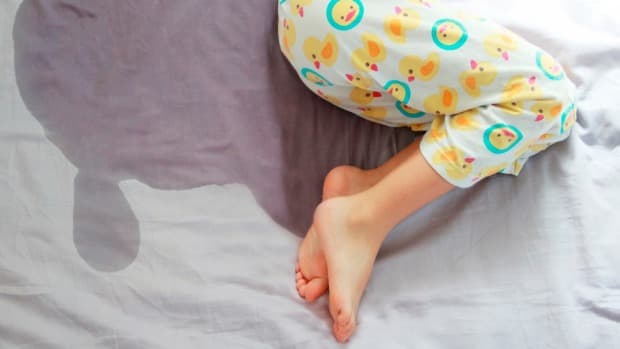
In Young Children : Bedwetting is generally considered normal for children under the age of 5–7. During these early years, many children are still developing full bladder control, especially at night. It’s often seen as a natural part of growth and development.
After Age 7 : For children older than 7, bedwetting is usually less common and may be classified as primary enuresis if they have never achieved night time dryness or secondary enuresis if they start bedwetting again after a dry period. In this age group, bedwetting may still be normal for some children, especially if there is a family history. However, if it persists, it could be considered abnormal, and consulting a healthcare provider is advised to rule out medical or psychological causes.
In Adolescents and Adults : Bedwetting is less common in older children, teens, and adults, so in these cases, it’s generally considered abnormal and could be due to underlying issues like urinary tract infections, stress, diabetes, or other health conditions.
In children, the bladder may still be developing, leading to less control over urination.
Family history plays a role, as bedwetting often runs in families.
Low levels of antidiuretic hormone (ADH), which reduces urine production at night.
Emotional stress or anxiety can trigger bedwetting in some people.
Infections can irritate the bladder and lead to bedwetting.
Some individuals have smaller bladder capacities, which fill up more quickly and can result in bedwetting.
Children who are heavy sleepers may not respond to the body’s signals to wake up and use the bathroom.
A full bowel can press against the bladder, affecting bladder control.
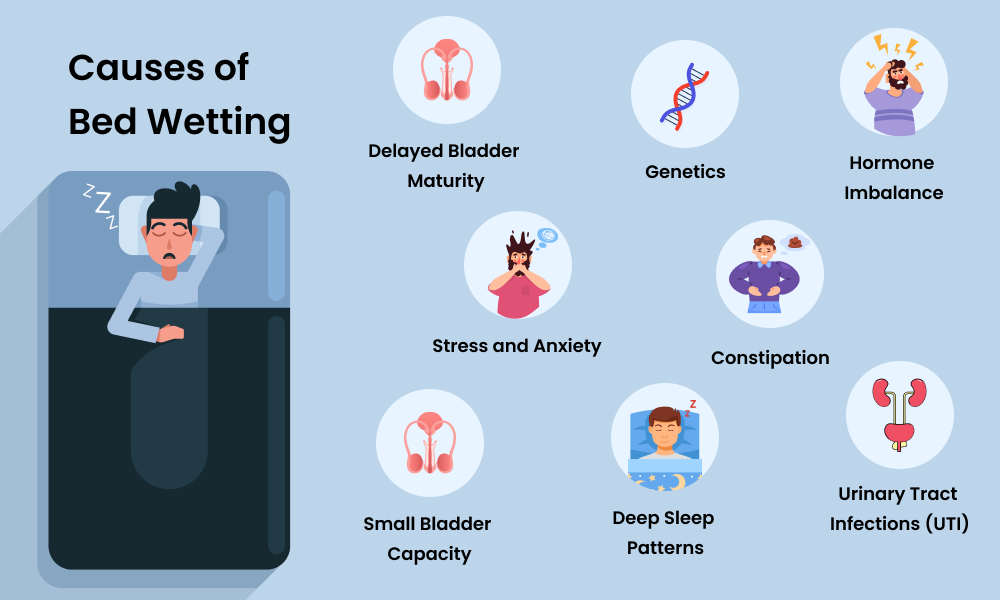
Bedwetting can affect self-esteem, especially in older children and teenagers, leading to feelings of shame or embarrassment.
Waking up wet can disrupt sleep, affecting rest and energy levels.
Prolonged contact with urine can lead to rashes or skin irritation.
It can affect a child’s social life, making them hesitant to participate in overnight activities or trips.
In Ayurveda, bedwetting is referred to as Shayyamutrata. It is believed to result from an imbalance of the Vata dosha, which governs bodily functions related to the nervous system and bladder control. Specifically, it is associated with Apana Vata, the subbordinate dosha that controls the downward movement of elimination.
Encourage a Vata-pacifying diet, which includes warm, cooked, and grounding foods.
Avoid foods that increase Vata, such as cold, dry, and raw foods, as well as excess caffeine and sugar.
Ensure good hydration during the day but limit fluids in the evening.
Following a regular sleep schedule can help manage bedwetting.
Encouraging regular bathroom breaks throughout the day and before bed can help build bladder control.
Practices like deep breathing and meditation help calm the mind and manage anxiety, which may contribute to bedwetting.
Applying warm sesame oil or Vata-balancing oils to the lower abdomen and lower back can help balance Vata and strengthen the bladder muscles.
Several Ayurvedic herbs are considered helpful in managing bedwetting (nocturnal enuresis) by strengthening the urinary system, calming the nervous system, and balancing doshas. Here are some commonly recommended herbs and remedies:
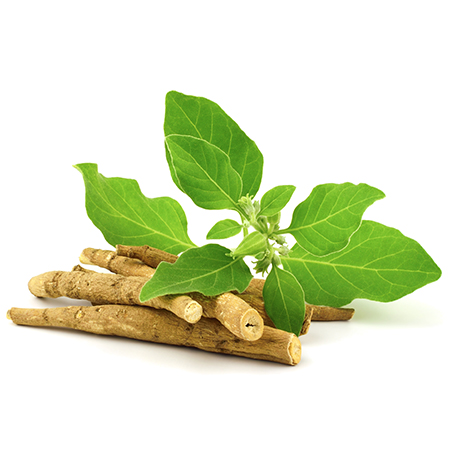
Known for its adaptogenic and calming effects, Ashwagandha helps reduce stress and anxiety, which can sometimes contribute to bedwetting.

Bala is used in Ayurveda to strengthen the muscles, including the bladder muscles, which may help with bladder control.

This herb is known for supporting the nervous system and enhancing focus and calmness. It may help with bedwetting if anxiety or restlessness is a factor.

Shatavari has a cooling effect and helps to balance the Pitta dosha. It may aid in strengthening and supporting the urinary system.
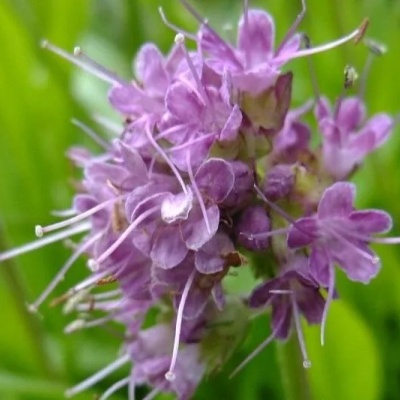
Known for its sedative properties, Jatamansi is used in Ayurveda to support restful sleep and reduce nervousness, which may help with night-time bladder control.
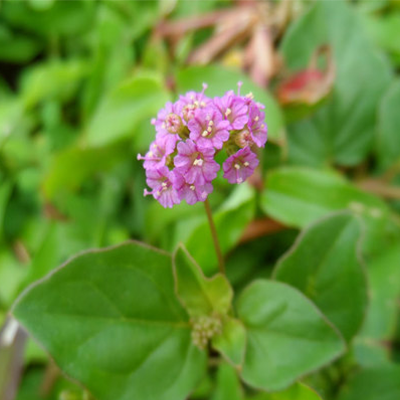
Punarnava is a diuretic and is often used to improve kidney function. It helps in maintaining healthy fluid levels and may be useful if bedwetting is linked to urinary issues.

Guduchi has rejuvenating and calming effects. It is considered to strengthen the body’s tissues and support proper function of the urinary system.
